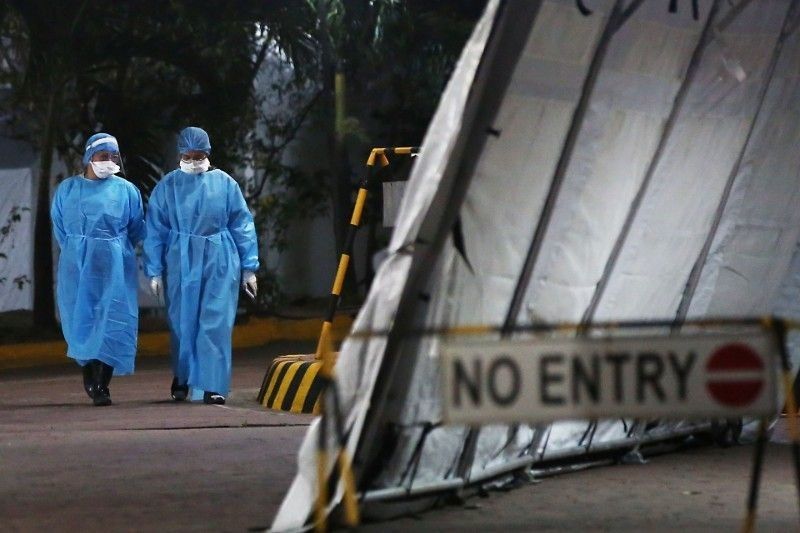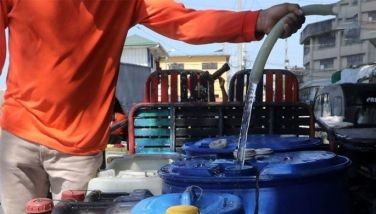COVID transmission slows down in Quezon City — UP report

MANILA, Philippines — The rate of transmission of the coronavirus disease 2019 or COVID-19 in Quezon City has slowed down in recent weeks, according to a University of the Philippines report.
The report, conducted by the UP team that regularly releases nationwide forecasts on COVID-19 cases, noted a decrease in the spread of the virus in the city following a spike in cases on the last week of May.
From an average of 50 COVID-19 infections per day from May 25 to 31, the figures went down to as low as 23 cases daily, UP researchers said, citing data from the Department of Health.
They said the low transmission rate has to be sustained for at least two weeks before they can declare that COVID-19 has been controlled in the city.
The researchers projected at least 3,150 cases of COVID-19 in Quezon City with 190 deaths by June 30.
As of June 21, there were 2,896 cases in the city with 186 fatalities.
If the current trend continues, it was projected that the number of COVID-19 cases would reach 4,000 with 210 deaths by July 31.
“After more than a month of modified restrictions, the gains made through the efforts of the Quezon City government, health workers and the residents are clear, the spread of the virus in QC has slowed down,” read the report dated June 22, a copy of which was obtained by The STAR.
“This is a good sign that should encourage the local government and the communities to continue working with urgency, cooperation and resolve to sustain the gains and to ensure that a further resurgence of cases, as seen in the past months, is prevented,” it added.
The report was written by UP mathematics professor Guido David, science society program professorial lecturer Rodrigo Angelo Ong, political science professor Ranjit Singh Rye and OCTA research associate Ma. Patricia Agbulos.
UP experts also noted the low number of asymptomatic individuals among active COVID-19 cases, raising the possibility that more individuals have yet to be detected.
“The number of undetected asymptomatic cases could be from 500 to 1,300 additional cases,” they said.
The report said only 58 out of 1,384 active cases are asymptomatic, way below the average of 40 percent cited by the World Health Organization.
Testing, contact tracing
Despite the gains, the researchers noted that COVID-19 remains a threat to public health and that the situation could again escalate if the city government and residents become complacent in the campaign against the disease.
They recommended the stricter implementation of community quarantine strategies, especially in areas identified as hotspots.
“The goal is to sustain these gains until such time that the national and local governments have scaled up and rolled out initiatives for mass targeted testing, contact tracing as well as isolation and treatment of infected individuals,” the report said.
It said mass testing would give a better picture of the gravity of the COVID-19 situation in the city.
Since last month, several areas in Quezon City have been placed on “special concern lockdown”to prevent the spread of the virus.
Residents have been subjected to rapid testing, with those positive for the virus undergoing confirmatory swab tests.
According to the UP experts, an aggressive and decentralized contact tracing strategy could help flatten the curve of COVID-19 in Quezon City.
They recommended the Baguio City model, which involves collaboration, coordination, cooperation and communication.
“In order to sustain the gains and build a momentum toward pandemic deceleration, the local government must ensure that its health systems such as hospitals and health centers are capable of detecting, testing, isolating and treating every case of COVID-19, as well as tracing every contact,” read the report.
UP health experts said Quezon City should also enforce the rules on physical distancing and minimum health standards, especially in malls and other crowded places.
Seven employees of the University of the Philippines in Diliman, Quezon City have tested positive for the coronavirus disease 2019 (COVID-19).
In an advisory issued yesterday, the university said the frontliners were among those working at the UP Health Service (UPHS) and Kanlungang Palma, which is the designated quarantine facility on the campus.
The university said the frontliners have been isolated, with their close contacts traced by the UPHS public health unit.
“After consulting with an infectious disease specialist from the Philippine General Hospital, services will continue at the Kanlungang Palma and the UPHS,” read the advisory. “The UPHS is closely monitoring the COVID-19 cases on campus.”
In a phone interview, UP Diliman chancellor Fidel Nemenzo said the situation is not expected to affect the operations of the university as they have adopted work-from-home arrangement.
- Latest
- Trending





























